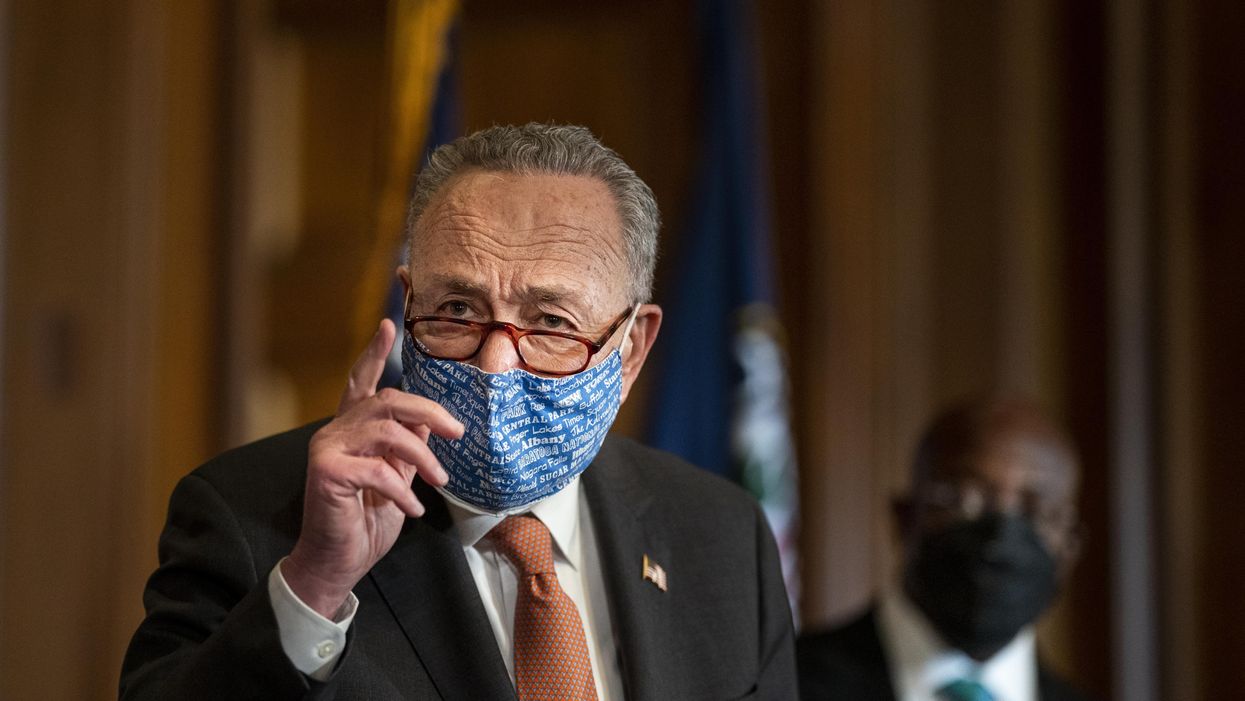On the heels of a contentious election and attempted insurrection, congressional Democrats and Americans across the political spectrum are on the same page when it comes to making democracy reform a top legislative priority.
But renewed efforts to pass legislation known as HR 1 — which would expand access to the ballot box, curb the influence of big money in politics and end partisan gerrymandering — still face the same old roadblocks.
House Democrats passed the first iteration of the so-called For the People Act two years ago, and they will likely do so again early in this Congress. And although the Democrats' newly minted majority in the Senate will give them more control over the legislative agenda this time around, getting the bill through that chamber without Republican cooperation — or eliminating the filibuster — will prove to be a herculean task.
Still, Democrats say the repeated attempts to subvert the 2020 election, including the violent attack on the Capitol earlier this month, demonstrate why this legislation is needed now more than ever. The bill includes provisions to strengthen election security, make voting more accessible and safe, and bolster campaign finance transparency, among other reforms.
The Senate's new majority leader, Democrat Chuck Schumer, said his chamber's version of the bill, dubbed S. 1, "will ensure that government is finally able to respond to the pressing needs of the American people."
And while the efforts in Congress to pass this legislation are largely one-sided, two-thirds of Americans across party lines back the bill, according to a poll released Friday by Equal Citizens and conducted by Data For Progress.
The survey found that Democratic voters, unsurprisingly, were the most supportive of HR 1 at 77 percent — but a majority of independents (68 percent) and Republicans (56 percent) were also in favor. The poll surveyed just under 1,200 likely voters Jan. 15-19 — more than a week after the riot at the Capitol — and had a margin of error of 2.9 percentage points.
"Americans across the political spectrum are ready for fundamental democracy reform that will end gerrymandering, protect the right to vote, and reduce the influence of big money in politics. This poll clearly shows that the public stands behind Democratic congressional leaders in their decision to prioritize the For the People Act," said Adam Eichen, executive director of Equal Citizens.
Of course, Americans broadly supported these efforts in this past, to no avail.
Another big push for reform this week was focused on limiting the influence of money in politics. On Thursday — to mark the 11th anniversary of the Supreme Court's ruling in Citizens United v. FEC, which allowed for unlimited corporate spending in elections — lawmakers re-introduced a constitutional amendment to allow federal and state governments to regulate such political money.
Democratic Reps. Ted Deutch of Florida, Jim McGovern of Massachusetts and Jamie Raskin of Maryland and GOP Rep. John Katko of New York are leading the effort to pass the amendment, which has been introduced in every Congress since the 2010 Supreme Court ruling.




















